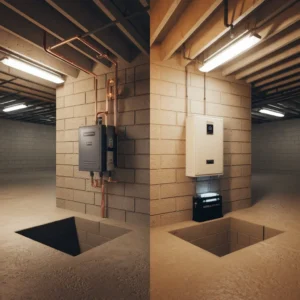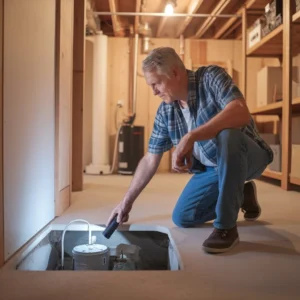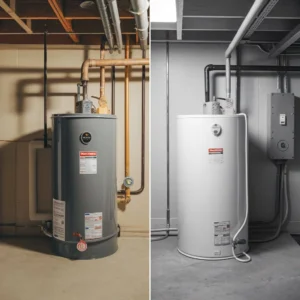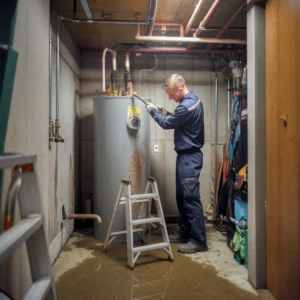Homeowners across the US often seek reliable, cost-effective ways to keep their living spaces comfortable year-round. From scorching summers to chilly winters, efficient heating and cooling systems can significantly improve your comfort while reducing your energy bills. Geothermal heat pumps have emerged as a sustainable option that taps into the Earth’s natural warmth, delivering consistent results no matter the weather.
In this article, we’ll explore what a geothermal heat pump is, how geothermal heat pumps work, and what homeowners should know before investing in a geothermal heat pump system. We’ll also discuss the benefits, address common questions, and show why professional help from DNA Plumbing and Heating ensures proper installation, long-term performance, and local plumbing codes—key elements that safeguard your home’s value and comfort.
What Is a Geothermal Heat Pump?
A geothermal heat pump, often called a ground-source heat pump, uses the Earth’s stable underground temperatures to warm or cool your home. Unlike traditional furnaces that burn fuel, geothermal units rely on heat transfer. If you’ve wondered, “What is geothermal heat pump technology?”—it’s essentially a system where piping, known as loops, circulates fluid within the ground to capture or release heat.
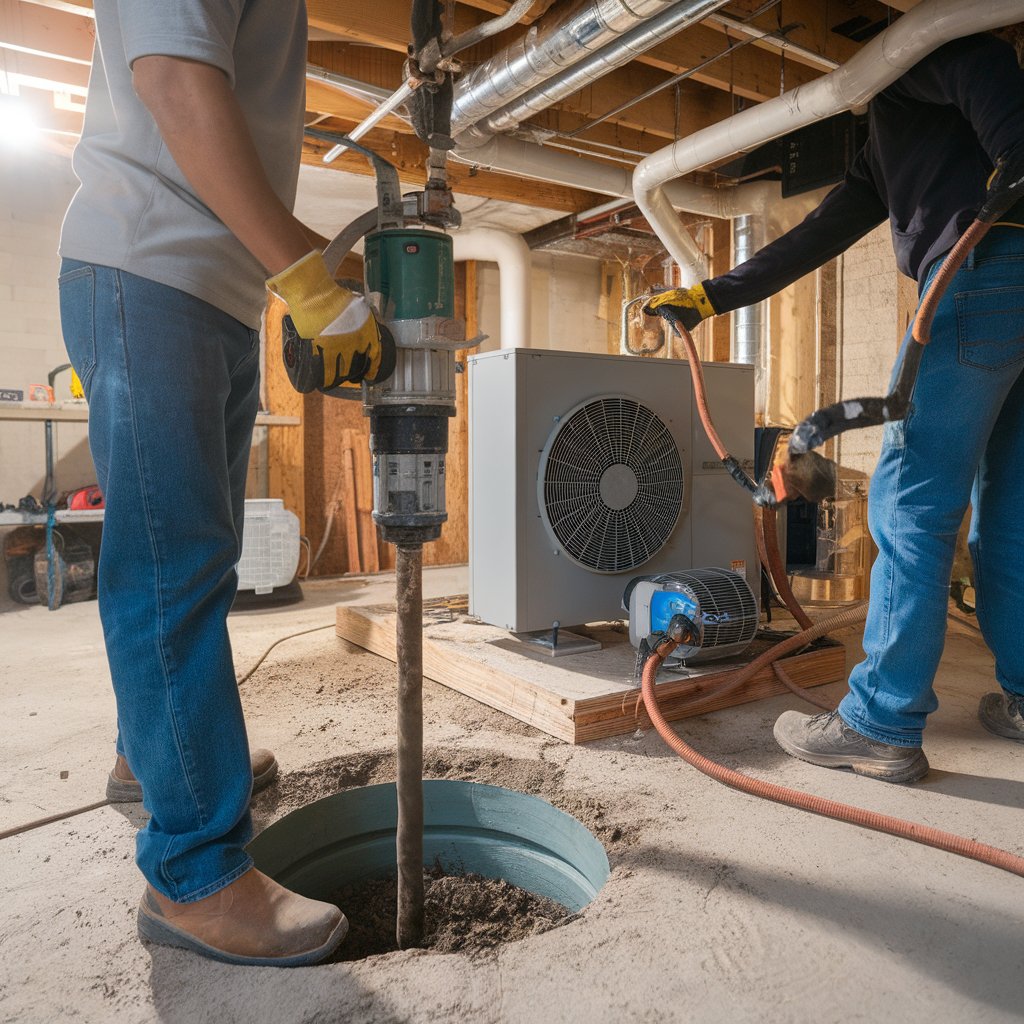
How Geothermal Heat Pumps Work
If you’re asking, “How does a geothermal heat pump work?” or “How geothermal heat pumps work in general,” the answer lies in constant underground temperatures. During winter, the fluid in the loops absorbs heat from the ground and transfers it into your home. In summer, it reverses, pulling excess heat out of your home and releasing it into the cooler soil.
Benefits of a Geothermal Heat Pump System
A geothermal heat pump system offers several advantages. First, it can significantly cut heating and cooling costs, owing to its higher efficiency compared to many conventional systems. Second, it’s eco-friendly because it relies on renewable energy from the earth. Finally, geothermal setups are built to last, providing a durable and low-maintenance solution that supports home comfort and indoor air quality.
Is My Heat Pump Geothermal?
If you’re wondering whether your system is geothermal, here are some signs to look for. Traditional heat pumps often rely on outdoor air-exchange units, while geothermal systems connect to underground or water-based loops. If your property has visible outdoor pipes heading into the ground or if installation paperwork mentions ground loops, you may be using a geothermal model.
Are Geothermal Heat Pumps Worth It?
One of the most common questions homeowners ask is, “Are geothermal heat pumps worth it?” The initial cost is typically higher than that of traditional HVAC systems. However, significant long-term savings, lower utility bills, reduced carbon footprint, and incentives in some areas often offset the initial investment. For many US homeowners, professional installation and maintenance by DNA Plumbing and Heating make geothermal a wise, lasting choice.
Professional Installation and Maintenance by DNA Plumbing and Heating
When installing, servicing, or needing to replace a heat pump system, local regulations, soil conditions, and proper loop placement are critical—especially for geothermal setups. DNA Plumbing and Heating specializes in determining the right configuration for your home. This meticulous approach maximizes efficiency and safeguards your long-term investment.
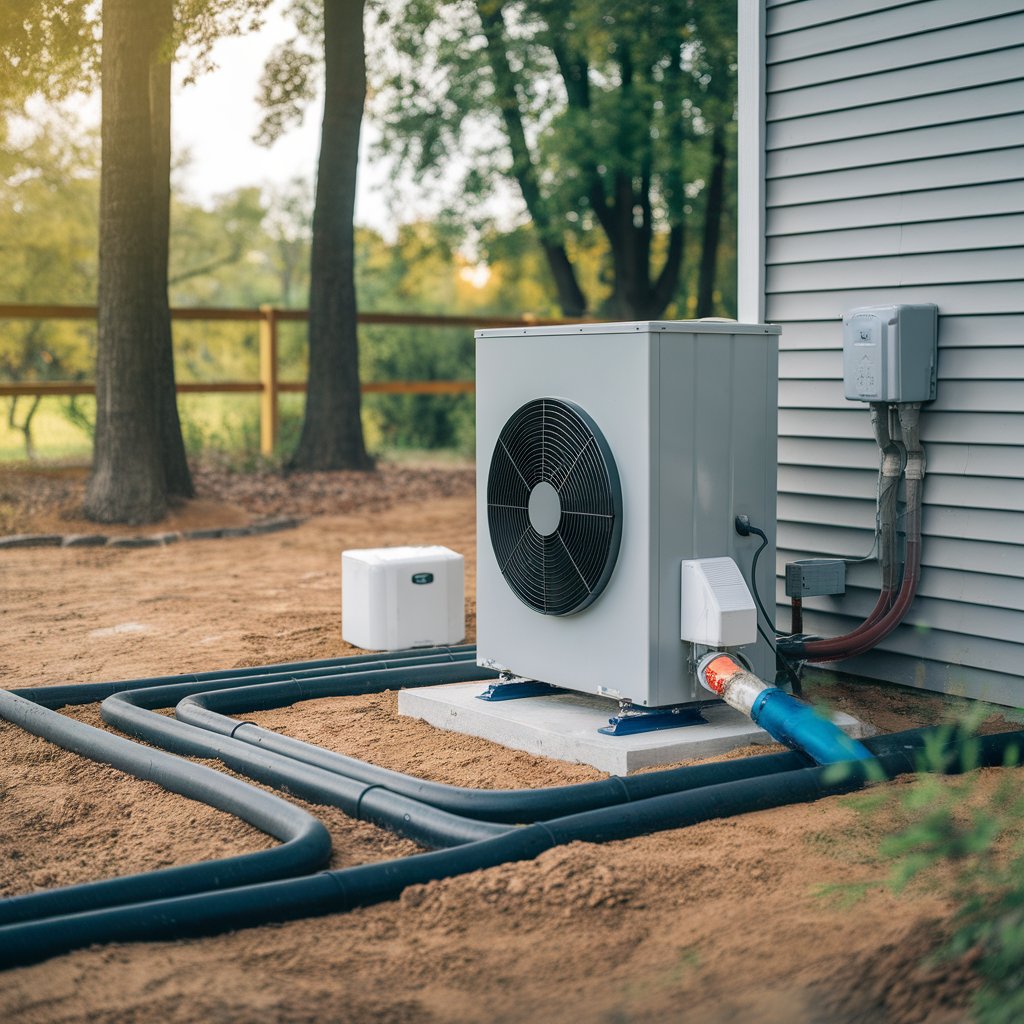
Conclusion
Geothermal heat pumps offer US homeowners a blend of efficient heating, cooling, and low environmental impact. By tapping into steady underground temperatures, these systems provide comfortable indoor spaces, lower monthly bills, and peace of mind during every season. DNA Plumbing and Heating stands ready to handle installation, maintenance, and help you understand factors that affect heat pump lifespan—ensuring your system performs at its best for years. Get in touch to schedule an inspection or consultation and enjoy reliable comfort and energy savings in your home for years to come.

